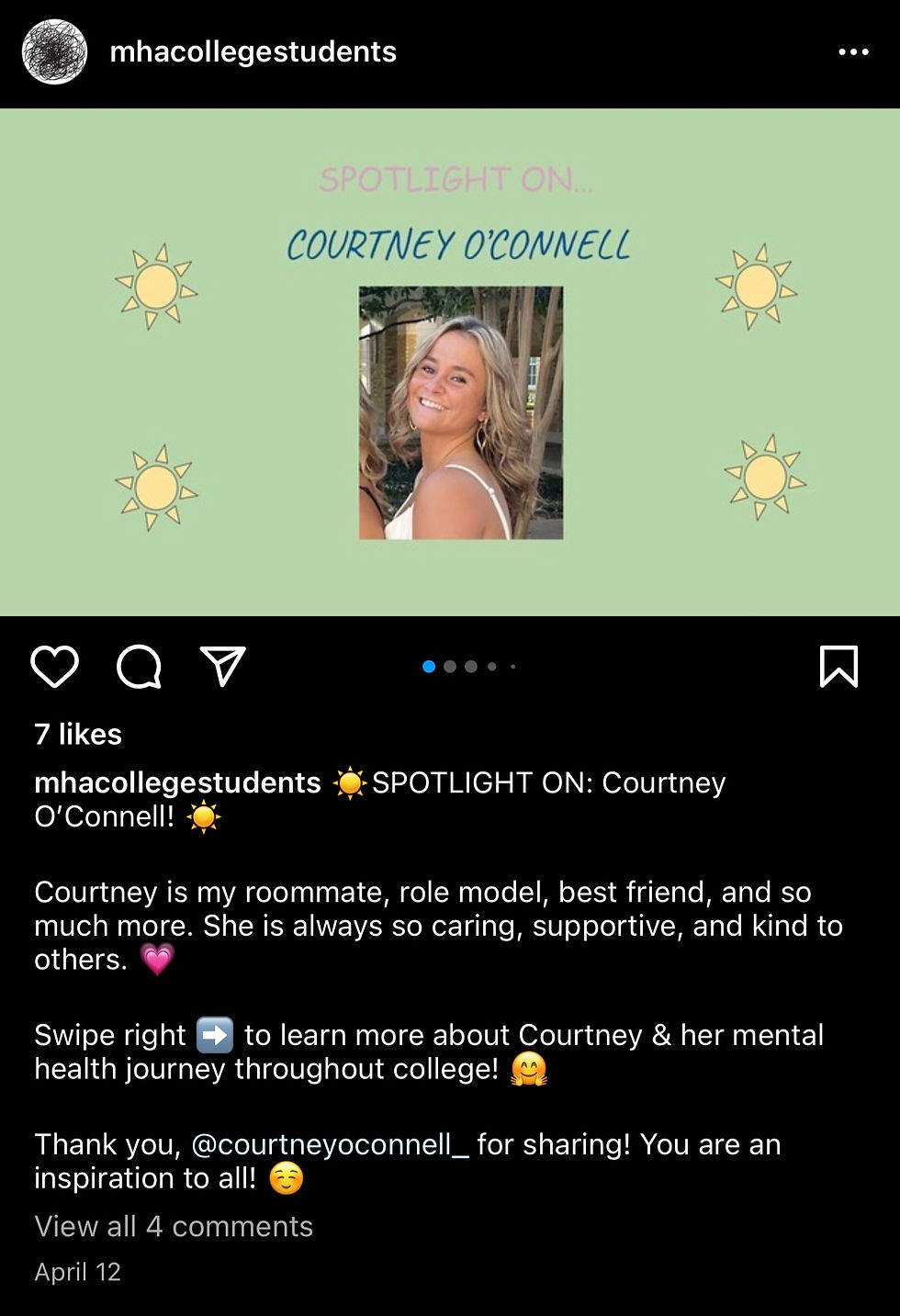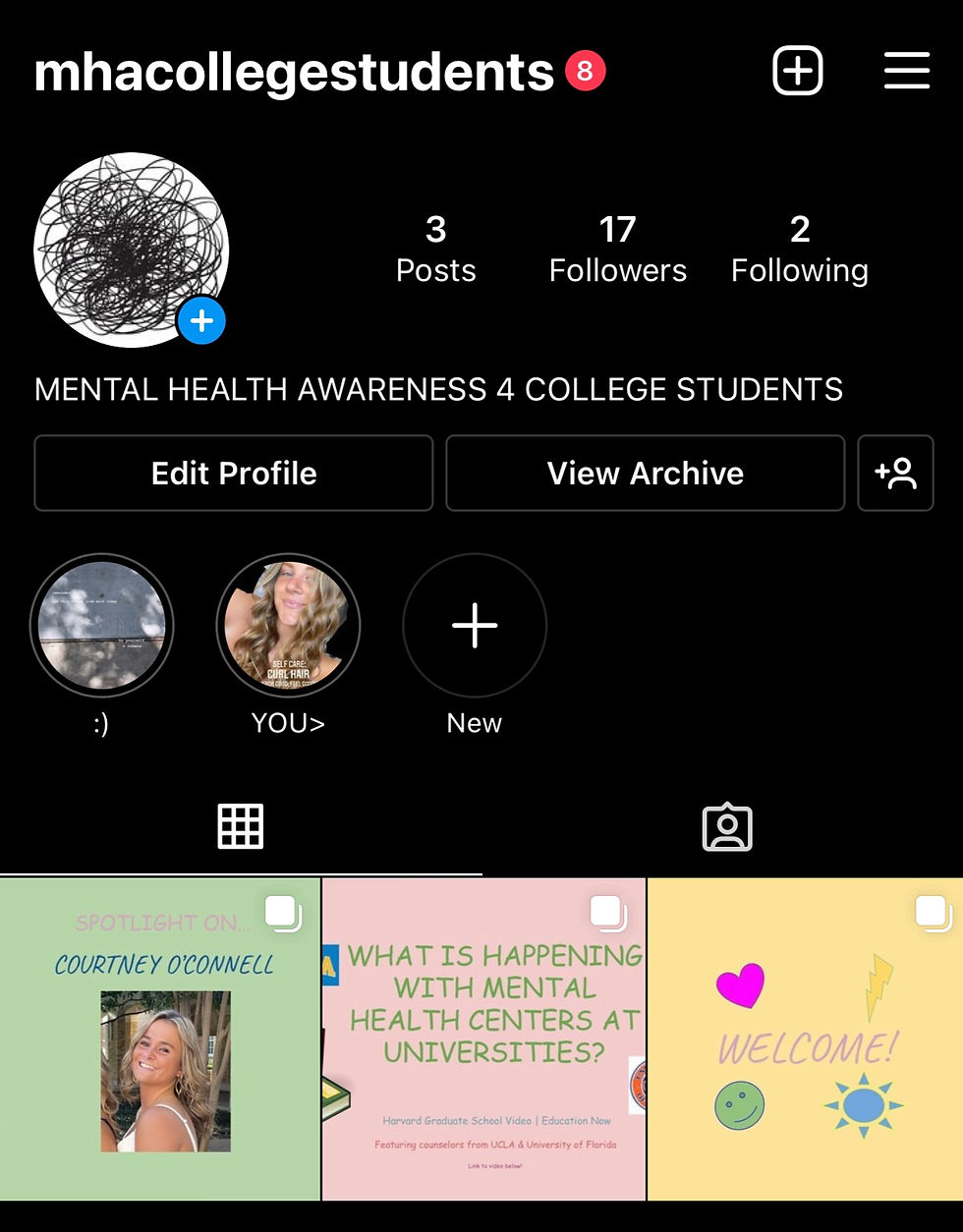Google Research Notes
- cottaviano3
- Apr 22, 2022
- 3 min read
(Harvard Graduate School Video: Education Now)
- Long wait times for clinical care, the demand is high (individual compilatory care is students' most favorite)
o This is a worldwide crisis! “Focusing on mental health for the first time, we have been un-resourced to meet the demands” “no more breaks in the summer” at UCLA
o Outpacing 6% -> 8-9% increase in demand for services at the University of California; seems like students are making up for the lost year of 2020
§ A lot has changed within the last 20 years: gun violence issues, global warming issues, recessions in the past, political discourse; “students have been given messages about how much doom there is”
a. There is hope!!! The University of Florida has a CAR team (consultation, assessment, and referral)
§ Hire 10 counselors that work in the “emergency room.”
§ Meet with the student for 20-30 minutes & try to identify immediate resources that are appropriate for that individual
§ This will decrease the waitlist for the main counseling center but also help those who are in need
b. UCLA has a resilient center; that teaches students how to think about their mental health as a daily practice rather than just on the day they go to the doctor
i. Ex: manage it through sleep, exercise, diet, etc.
c. Universities in Florida: Cognito Program
i. Web-based program that helps the staff on campus be able to support students in distress
1. Also training students
ii. Students and staff will be able to help each other and identify appropriate resources for their personal needs
o “College students’ sense of belonging related to mental health during a pandemic”
o BELONGINGNESS!
§ “I think institutions need to be thinking a lot more about what they are going to promote students’ sense of belonging and what effect that might have, which goes beyond academic outcomes” – Maithreyi Gopalan (Assistant professor of Education and Public Policy at Penn State)
· SURVEY BEFORE + AFTER PANDEMIC:
In an online survey regarding college experience to undergraduate students from a large Northeastern public university in November 2019- switched to remote learning in March 2020- researchers designed a follow-up survey to better understand changes in college students experienced across their study site
· OUTCOME:
o No significant change in students' reports of belongingness at their college amid the pandemic despite campus closure and social distancing mandates
· Students that reported their institution had welcomed them and felt like they belonged on campus before the pandemic ‘were the ones who reported lower depression and anxiety during COVID19’
o Greater belongingness was negatively associated with adverse mental health outcomes such as depression and anxiety
o Greater belongingness was negatively associated with adverse mental health outcomes such as depression and anxiety
o Higher sense of belonging reduced mental health symptoms was stronger for depression but less for anxiety
o Anxiety is sometimes more salient in a social setting- social distancing may have reduced the likelihood of social exclusion/ social anxiety
· CONCLUSION/ CHANGES:
o Plan to do a daily diary survey of belongingness to ask students how they feel on multiple day bases as well as examine mechanisms that promote students’ sense of belonging as well as mental health
o Looking into psychosocial factors that affect students’ sense of belonging and substance use during and beyond a pandemic.



Comments